Cargando...
Recursos educativos
-
Nivel educativo
-
Competencias
-
Tipología
-
Idioma
-
Tipo de medio
-
Tipo de actividad
-
Destinatarios
-
Tipo de audiencia
-
Creador
-
Final self-evaluation 03 - Ancient History
EduBook Organización
- 3251 visitas
Match each beginning with a conclusion which is correct and makes sense. The Celts . The Celts were . The Celts' villages . The Celts were a tribe . The Iberians . The Iberians knew how to . Iberian…
-
Final self-evaluation 02 - Ancient History
EduBook Organización
- 4248 visitas
Decide if each statement about the Celts and Iberians is true or false: Both the Celts and Iberians used writing and money. ➝ The Iberians lived in villages called forts. ➝ Iberian villages were…
-
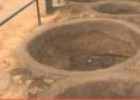
The Iberian village of Ullastret (Gerona)
Maria Pallarés Docente
- 1 lo usan
- 2793 visitas
Video about the Iberian population of Ullastret that describes how the site was set out and the economic activities that were carried out by the Iberians. It might be especially interesting to comment…
-
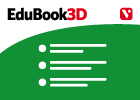
Ancient History
EduBook Organización
- 3 lo usan
- 19181 visitas
Ancient history began in about 4000 BC when writing was invented. About the year 1000 BC, two different tribes called the Iberians and the Celts lived on the Iberian Peninsula. In the year 218 BC, the…
-
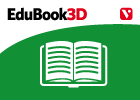
End-of-unit activities - Ancient History
EduBook Organización
- 3716 visitas
Ancient history began in about 4000 BC when writing was invented. About the year 1000 BC, two different tribes called the Iberians and the Celts lived on the Iberian Peninsula. In the year 218 BC, the…
-
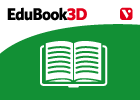
Introduction - Ancient History
EduBook Organización
- 3427 visitas
Ancient history began in about 4000 BC when writing was invented. About the year 1000 BC, two different tribes called the Iberians and the Celts lived on the Iberian Peninsula. In the year 218 BC, the…
-
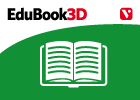
End-of-unit evaluation - Ancient History
EduBook Organización
- 2938 visitas
Ancient history began in about 4000 BC when writing was invented. About the year 1000 BC, two different tribes called the Iberians and the Celts lived on the Iberian Peninsula. In the year 218 BC, the…
-
True/false. The Iberian Peninsula in Roman times
EduBook Organización
- 2912 visitas
Decide if the following statements are true or false: In Roman times, the Iberian Peninsula was inhabited by the Iberians and the Celts. ➝ The Italian Peninsula was controlled by the Carthaginians.…
-
True/false. The Roman province of Hispania
EduBook Organización
- 3086 visitas
Answer true or false: The Celts and Iberians adopted Roman laws. ➝ The Romans conquered the Iberian Peninsula very quickly. ➝ The Roman army lived in cities. ➝ The Carthaginians were the…
-
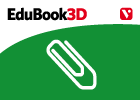
Iberian burial rituals
EduBook Organización
- 2527 visitas
The Iberians introduced new burial rituals. They cremated (burned) their dead and then put the ashes in a pottery urn. They then buried the urn with everyday objects like weapons, tools and coins. What…
Te estamos redirigiendo a la ficha del libro...













